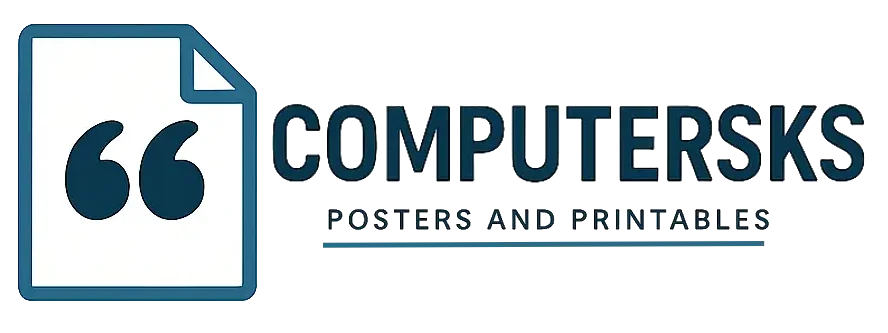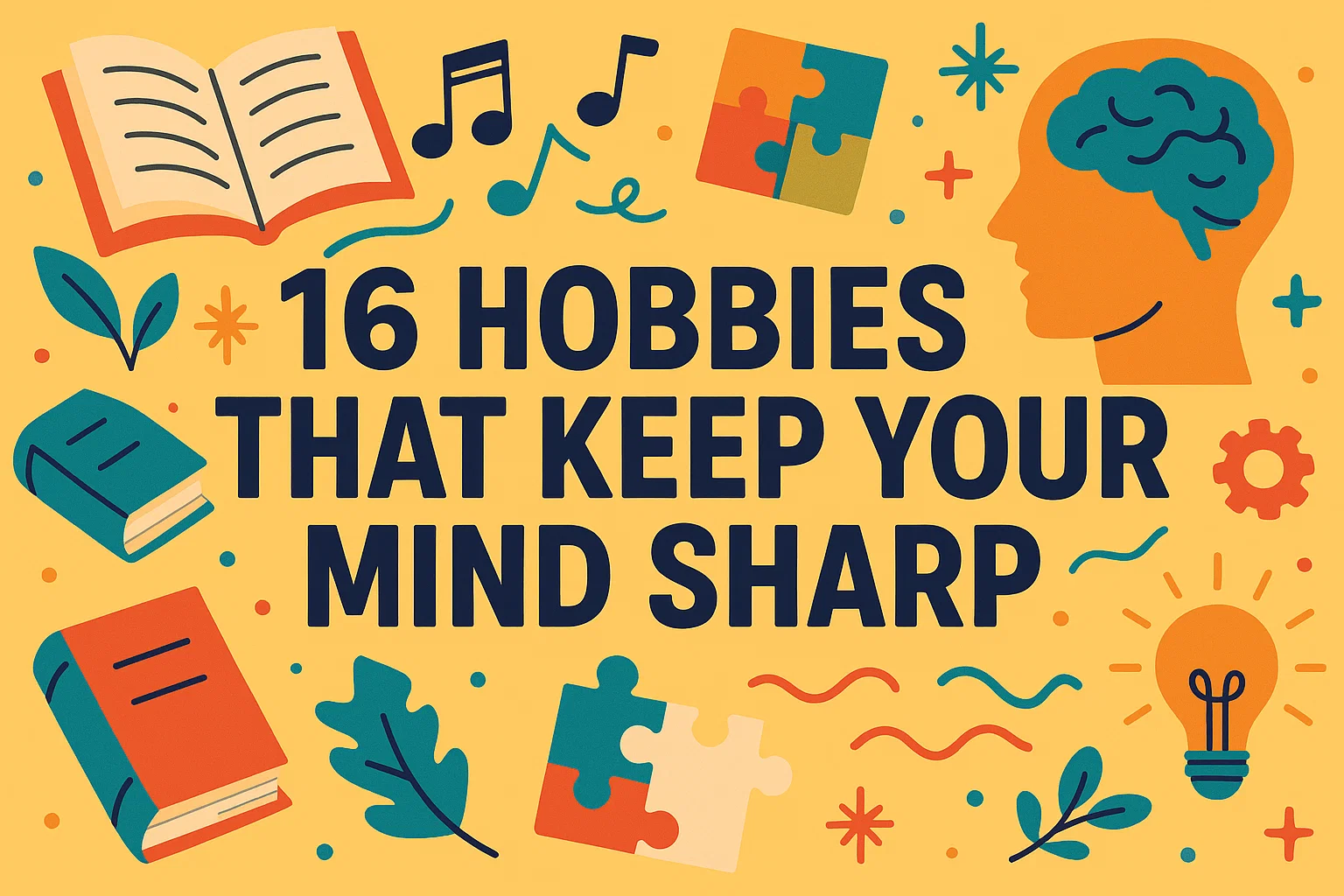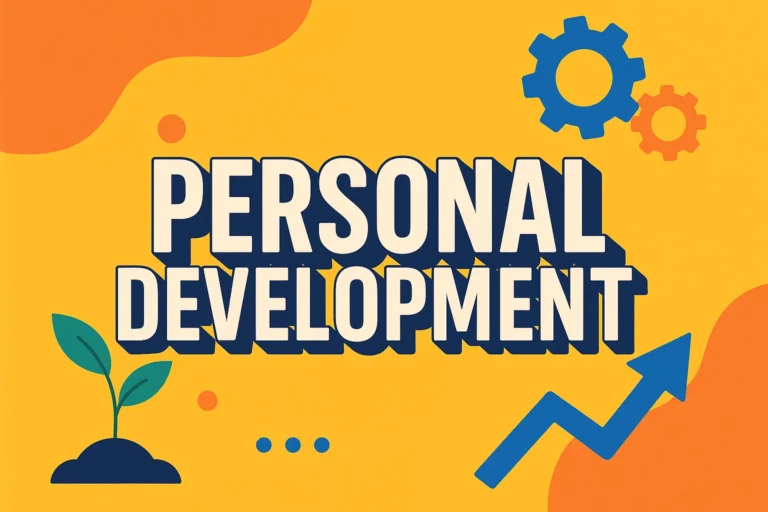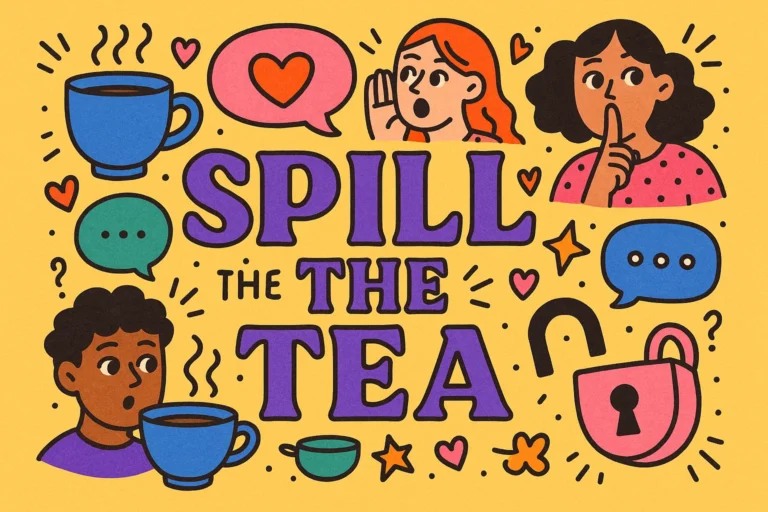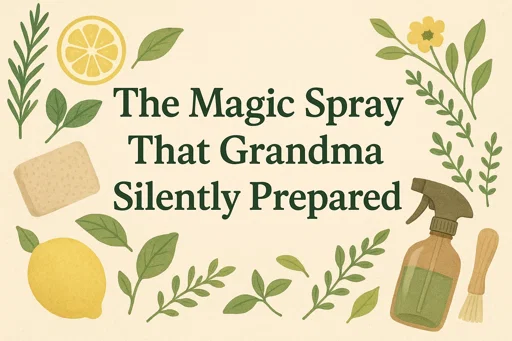16 Hobbies to Boost Your Mind Sharpness and Enhance Your Productivity Planner Skills
Ever feel like your brain is a browser with too many tabs open? You’re trying to focus on your productivity planner, but your mind is bouncing between a work deadline, what to make for dinner, and that weird noise your car started making this morning. Yeah, me too.
We spend so much time trying to organize our lives with fancy planners and complex systems, but we often forget the most crucial component: the brain running the whole show. What if you could upgrade that processor? I’m not talking about a weird sci-fi implant. I’m talking about hobbies. The right kind of fun, engaging activities can seriously sharpen your mind and, in turn, make you a freaking wizard with that productivity planner of yours. Let’s get into it.
Why Your Brain Needs a Hobby (That Isn’t Scrolling)
Think about it. When you spend all your time on passive consumption (hello, endless social media scroll), your brain goes on autopilot. It doesn’t have to work hard. But a good hobby forces your mind to engage, to learn, to make new connections.
This does two amazing things for your productivity. First, it builds cognitive reserve—essentially, your brain’s resilience against, well, life. A sharper mind makes clearer decisions faster. Second, it teaches you focus and flow. Getting lost in a hobby is practice for deep work, a skill that will supercharge your planner sessions. So, let’s find you a new mental workout.
The Creative Cohort: Hobbies for Out-of-the-Box Thinking
These hobbies are all about breaking your normal patterns and forcing your brain to see the world differently. This is pure rocket fuel for problem-solving skills.
Learning a Musical Instrument
Picking up a guitar or even just learning some basic piano chords is a full-brain workout. You’re reading music, coordinating your fingers, and listening for pitch all at the same time. I started with the ukulele a few years back, and the struggle was real. But pushing through that initial frustration taught me more about patience and incremental progress than any productivity book ever could.
Sketching or Doodling
This isn’t about becoming the next Picasso. It’s about training your eye to see shapes, shadows, and proportions. It forces you to be present and observational. The act of translating a 3D world onto a 2D page is a massive cognitive task. Plus, doodling in your planner’s margins during a meeting can actually help you retain information better. No, really, it’s science.
Creative Writing or Journaling
Beyond just venting your feelings, creative writing builds worlds, characters, and plots. It enhances your ability to structure narratives—a skill that translates directly into structuring projects and presentations. If fiction isn’t your thing, try bullet journaling with a creative twist. It combines organization with artistic expression, making your planner a tool you actually want to open.
Pottery or Sculpting
There’s something incredibly grounding about working with clay. It’s a tactile, hands-on hobby that improves your spatial reasoning and fine motor skills. You have to think in three dimensions, planning how your actions will shape the final product. Ever tried to center clay on a wheel? It requires a Zen-like focus that will absolutely translate to a calmer, more centered approach to your daily tasks.
The Strategic Squad: Hobbies for Planning and Foresight
If you live by your productivity planner, you’ll love these. They’re all about strategy, foresight, and seeing several steps ahead.
Chess or other Strategy Games
This one’s a no-brainer. Chess is the ultimate game of “if I do this, then they’ll do that.” It systematically improves your working memory, pattern recognition, and strategic planning. You don’t have to become a grandmaster. Just playing regularly forces your brain to think critically and anticipate consequences. Sound familiar? It’s basically risk assessment for your project plans.
Learning a New Language
¡Hola! Bonjour! 你好! This hobby is a beast for cognitive improvement. It strengthens memory, enhances listening skills, and improves your ability to multitask. Struggling to recall a vocabulary word is like doing a rep for your memory muscles. A sharper memory means you’ll have an easier time recalling the important tasks in your planner without relying on a dozen sticky notes.
Jigsaw Puzzles
Don’t underestimate the humble jigsaw puzzle. It’s a masterclass in visual perception, logical deduction, and patience. You learn to sort, categorize, and look for small details that fit into a bigger picture. Seriously, isn’t that exactly what managing a complex project is all about?
Gardening
Hear me out. Gardening is a long-term strategic game. You have to plan what to plant, where to plant it based on sun and soil, and schedule watering and care. It teaches delayed gratification and the importance of consistent, small efforts over time—a vital lesson for anyone tackling long-term goals in their productivity planner.
The Mindful Masters: Hobbies for Focus and Clarity
These activities are less about doing and more about being. They train your attention muscle, which is arguably the most important muscle for productivity.
Meditation
I know, I know. It can feel a bit woo-woo. But at its core, meditation is just practice for noticing when your mind has wandered and gently bringing it back. This is the fundamental skill of focus. Even five minutes a day can train you to recognize distractions and return to the task at hand, making your planner time infinitely more effective.
Reading (Fiction!)
Getting lost in a good novel isn’t an escape; it’s a training ground for your brain. It improves your ability to concentrate for extended periods and boosts your empathy and theory of mind (understanding others’ perspectives). Both are incredibly useful for collaborative work and communication.
Knitting or Crocheting
The repetitive, rhythmic nature of these crafts is meditative. It requires just enough attention to keep you present, but it’s simple enough to let your mind wander and process ideas. I can’t tell you how many times I’ve untangled a tricky problem in my head while untangling a ball of yarn. It’s a form of active rest that leaves your mind clearer than when you started.
Hiking in Nature
This is my personal favorite. A walk in the woods, away from notifications and screens, gives your prefrontal cortex—the part of your brain responsible for decision-making and willpower—a much-needed break. This “soft fascination” allows your brain to recharge its focus batteries. You’ll come back to your desk with a fresher perspective and renewed energy to tackle that to-do list.
The Puzzle Posse: Hobbies for Logical Problem-Solving
If you love the feeling of cracking a code or solving a problem, these are for you. They’re like a direct workout for your logical thinking muscles.
Coding a Simple App or Game
You don’t need to become a software engineer. Platforms like Scratch or freeCodeCamp make it easy for beginners. Coding teaches you to break down big problems into tiny, manageable steps—a skill literally called decomposition. It’s the exact same process you use to break a big, scary goal in your planner into a series of actionable tasks.
Sudoku and Logic Puzzles
These are the calisthenics of the mind. They demand pure, unadulterated logic and deduction. Regularly flexing these mental muscles makes you quicker at spotting inconsistencies, identifying patterns in data, and thinking sequentially. It’s a quick, portable brain boost.
Playing a “God” Game (Like SimCity or Civilization)
Strategic video games are fantastic for systems thinking. You have to manage resources, balance short-term needs with long-term growth, and adapt to unexpected events (like a monster attack or a dissatisfied populace). These games simulate complex systems and teach you about consequence and resource allocation in a wildly engaging way.
Learning to Cook a New Cuisine
Cooking is edible chemistry and project management. You have to follow a sequence (mise en place, anyone?), manage multiple timers, and adapt when things go slightly wrong. Mastering a complex recipe requires planning, timing, and execution—the holy trinity of productivity. FYI, the reward is also delicious. 🙂
Tying It All Back to Your Productivity Planner
So, how does learning chess or getting dirt under your fingernails make you better at using a planner? It’s all about cross-training.
A hobby teaches you to enjoy the process, not just rush toward the outcome. This mindset shift makes planning your week feel less like a chore and more like a strategic game. When your mind is sharper from learning a language, you’ll prioritize tasks more effectively. When you’re calmer from meditation, you’ll estimate time blocks more realistically.
Your brain is your most important tool. A good planner organizes your time, but a sharp mind actually gets the work done. So, which of these hobbies are you going to try first? Your productivity planner (and your brain) will thank you for it. IMO, it’s the most fun you’ll ever have getting your life together 😉
